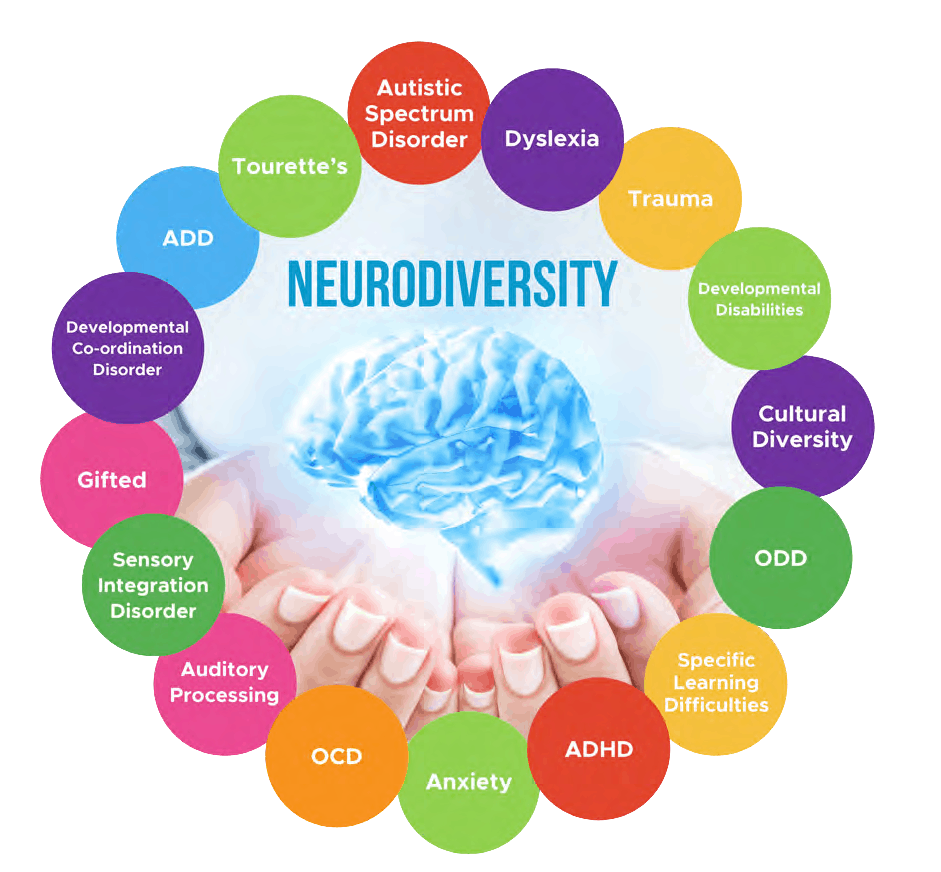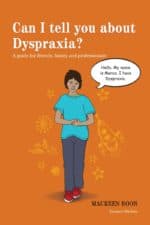10 Essential Tips to Share to Increase Understanding During April
Embrace Neurodiversity Today!
Neurodiversity is the concept that neurological differences between people should be recognised and respected. Instead of using terms like ’dys – function’ ‘dis- abilities’ & ‘dis-orders’ neurodiversity is an enabling term that takes into account neurological differences. Neurodiversity – is not one size fits all. We are all different and neurodiversity celebrates difference. In this episode we discuss:
✅ April as an Opportunity to Celebrate & Advocate for Neurodiversity
✅ Why I love the term Neurodiversity
✅ Why important to ask about people’s personal preferences for “terminology”
✅ During April watch and learn from a Movie, or TV Show.
✅ Connect to Neurodiverse people online to celebrate neurodiversity
✅ 10 Top Tips to Understand Neurodiversity to share with your community
Embrace Neurodiversity Today!
I personally love the term neurodiversity, as many children I meet don’t have official “labels” yet, but their family, educators, etc. notice their different way of engaging in learning. My passion is to ensure these children get the most out of their educational settings by putting in place strategies and accommodations that support their specific learning style.
One way to do this is to put in place strategies to ‘make learning fun’.
April is a great time to share diagnosis here are some helpful Podcasts:
https://suelarkey.com.au/sharing_diagnosis_how_friends/
https://suelarkey.com.au/how_to_share_diagnosis/
10 Essential Tips to Share to Increase Understanding and embrace neurodiversity!
See below for essential tips to explain neurodiverisity (AS, ADHD, ODD, PDA) and improve understanding!
1. Neurodiverse students don’t have to look at you all the time.
Reason: They often find looking and listening at the same time hard to do.
2. Give them time to answer any of your questions.
Reason: They have slower processing time. Sometimes it can take them up to a minute to formulate the answer
3. If they feel pressured they will answer with stock standard answers.
Reason: They know it will get them out of trouble quickly. This may include: “I don’t know”, “yes”, “maybe” and often this isn’t their true answer!
4. They often don’t “generalise” information between people and places.
Example: Homework for teacher ‘x’ is in the yellow basket but for teacher ‘y’ it’s to be placed in the green basket.
5. They find organisation of their school equipment very difficult.
Tip: They are best with one folder with everything inside. Limit the number of pencils, pens etc.
6. Limit their choices and be very specific with choices.
Reason: They find choices overwhelming and are often concerned with making wrong choice due to their difficulty with problem solving.
7. Be as clear, concise and concrete as possible.
Reason: Neurodiverse students have difficulty with abstract thinking.
8. Avoid verbal overload.
Reason: They are visual learners and verbal information takes them longer to process and retain.
9. Neurodiverse students are often literal.
Reason: They misinterpret your questions/comments .i.e. ‘Could’ or ‘Would,’ can can be interpreted as an option. Words like “Stop” and “No” don’t tell them what to do.
10. Neurodiverse students often have sensory processing difficulties
Reason: This is part of their diversity and different way of processing.
Help embrace neurodiversity today!
Join Sue for an upcoming Live Virtual Workshop where you will learn Sue’s practical tips & strategies to make a difference.

-
Can I Tell You About Asperger Syndrome?
$28.95 -
The Red Beast
$40.95 -
Talking to Family and Friends about the Diagnosis
$25.00 -
My Friend with Autism (Enhanced Edition)
$29.95 -
Inside Asperger’s Looking Out
$29.95 -
Can I Tell You About OCD?
$28.95 -
Can I Tell You About Autism?
$28.95 -
Can I Tell You About Anxiety?
$28.95 -
Can I Tell You About ADHD?
$28.95 -
Can I Tell You About Dyspraxia?
$28.95 -
I am an Autistic Girl
$31.95 -
Can I Tell You About Selective Mutism
$28.95 -
Disclosing the Diagnosis
$29.95 -
Gus the Asparagus
$29.95 -
All Birds have Anxiety
$31.95 -
Creating Autism Champions
$50.95 -
Winston Wallaby Can’t Stop Bouncing
$40.95 -
All Cats Are On the Autism Spectrum UPDATED and REVISED
$31.95 -
All Dogs Have ADHD UPDATED and REVISED
$31.95 -
Can I tell you about Pathological Demand Avoidance syndrome?
$28.95


























 Sorry we no longer ship items outside Australia. Please consider the digital versions of Sue’s Books –
Sorry we no longer ship items outside Australia. Please consider the digital versions of Sue’s Books – 